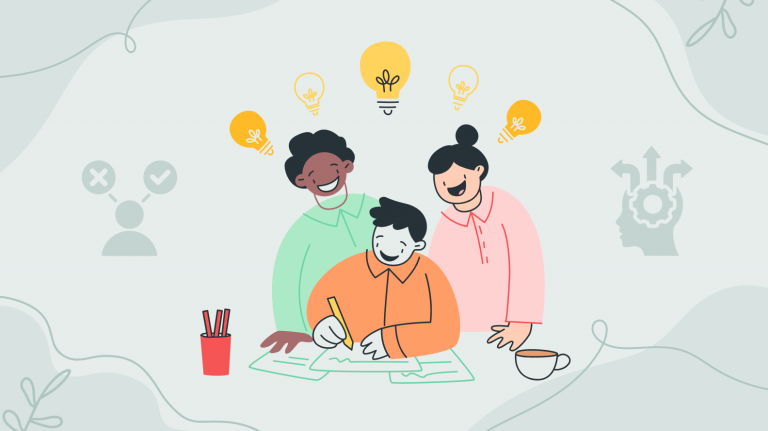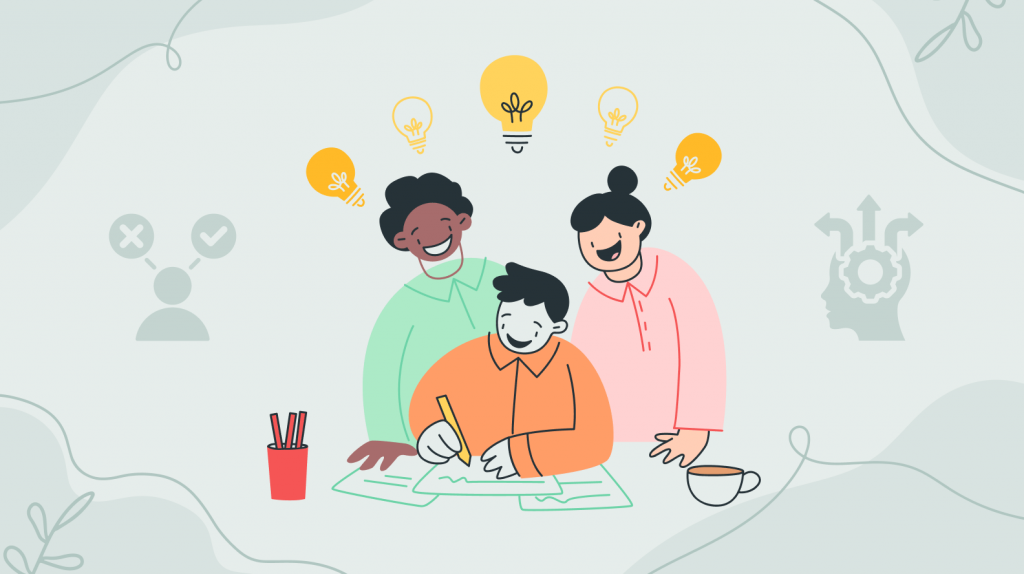Embracing Your Neuroception Potential
In our rapidly evolving world, possessing an acute intuitive sense can be a game-changer. This isn’t about forecasting the next viral meme but harnessing intuition to bolster decision-making, innovation, and creative thinking.
Enter neuroception! This is the brain’s silent sentinel, adding power to your intuition and creativity. Let’s dive into this fascinating realm, examining how neuroception can supercharge your intuitive edge for both personal and professional enrichment.
While you might think of intuition as a mystical force, your intuitive edge isn’t mere mysticism. Esteemed researchers are delving into this domain. Dr. Gary Klein, a leading figure in this space, is unraveling the mysteries of intuition. Through his research on decision-making and intuition, Klein illuminates intuition as a rapid, subconscious process, drawing from sensory inputs, past experiences, and emotional signals.
To understand how we naturally gauge our environment, let’s explore the essence of neuroception, a term coined by the renowned psychiatrist Stephen Porges in 2011. It dives into our innate ability to sense safety and threats in our surroundings without conscious effort. Have you heard of the Moro Reflex? The Moro Reflex is an automatic response seen in infants when they intuit they are falling. When triggered, babies will suddenly spread out their arms, and then quickly bring them back. Think of it as part of how your intuitive compass for picking up emotional and social cues can operate. This intuitive radar is invaluable, helping us make better decisions, based on our subtle awareness.
Building on this understanding, neuroception forms the bedrock of our intuitive prowess, allowing us to decode hidden emotions, detect the mood in a room, and decipher underlying messages. It’s like the brain’s system of our sixth sense. It’s a coveted skill for leaders, coaches, and anyone striving to forge deeper, intuitive connections with others. Oxytocin, the so-called bonding hormone, ties into this, and we’ll explore this connection shortly.
In the context of brain adaptability, there is the marvel of neuroplasticity. This is the brain’s remarkable capacity to adapt and reorganize by forging new neural pathways throughout life, even in later stages. This adaptability offers continuous opportunities for growth. We can refine their intuitive aptitude by acknowledging that our brains are malleable and can adapt through targeted exercises. Neuroscientist Michael Merzenich, a pioneer in this field, has emphasized that our brains are dynamic entities capable of rewiring.
With a better grasp of neuroplasticity, let’s also consider the neuroscience behind it. Our brain is a complex organ with various regions responsible for different functions. One such area is the amygdala, a part of our limbic system, often referred to as the brain’s emotional center. The amygdala plays a pivotal role in processing emotions, especially fear and pleasure, and is closely linked to our fight-or-flight response.
As you plan to enhance your intuitive skills, consider the prefrontal cortex, the thinking part of our brain, which is responsible for planning, decision-making, and moderating social behavior. This region collaborates with the amygdala to interpret the signals received through emotion and neuroception, helping us react unconsciously to situations. When our neuroception detects a threat, the amygdala triggers a cascade of physiological responses, preparing our body to either confront the danger or flee from it. Remember the Moro Reflex?
Developing expertise in intuition is a key area of fascination and lies in ‘expert intuition’ cultivated through prolonged and specialized experiences within a particular context. This refined intuition is commonly referred to as our sixth sense. Research by Dr. Antonio Damasio in 1995 has provided insights into the neural basis of intuition and decision-making processes, with recent research emphasizing specific brain regions, such as the insula, prefrontal cortex, and anterior cingulate cortex, as fundamental to intuitive cognition.
To actively enhance your intuitive capabilities, neuroplasticity serves as your gateway to unveiling latent talents and igniting the spark of intuition. Understanding the nuances of neuroplasticity activates your intuitive prowess. This necessitates diving into the world of neurotransmitters, like oxytocin – often dubbed the cuddle hormone, and plays a pivotal role in social bonding and emotional regulation. It not only promotes feelings of trust and empathy but also aligns perfectly with the development of your intuitive skills. Research by experts like Paul Zak illustrates the intricate dance of neurochemicals, offering insights into enhancing your intuitive prowess and mastering social dynamics.
Stay curious and open-minded, as encouraged by experts like Porges. Maintaining a curious disposition and an open mind is pivotal for enhancing cognitive growth and sparking creativity. These traits foster neuroception, enabling us to evolve, learn, and amplify intuitive creativity in decision-making.
Venture into the arts to unleash your creative juices. By painting, singing, or engaging in anything creative, you’ll soon learn the importance of trusting your instincts. You see how making unexpected connections, and bravely venturing into the unknown territories of neuroception opens your creativity.
Emphasizing the role of empathy, which is the linchpin of effective choices. By cultivating empathy, as highlighted by Paul Zak’s oxytocin research, we can better understand and respond to their team’s emotional needs, thereby sharpening their intuitive abilities.
However, it’s essential to beware of overload. Be wary of the pitfalls that can dim your intuitive glow, namely stress and cognitive overload. To counter these, adopt a growth mindset, tap into your resilience, and seek comfort in supportive communities. Remember the pivotal role of neurotransmitters, as highlighted by Paul Zak.
Mastering your intuitive skills, particularly expert intuition, honed through specialized experience and practice, is what we refer to as the intuitive-edge. Future studies might explore various intuition types and their links to conscious decision-making. The neuroscience of intuition is a continually evolving and captivating field.
Looking ahead to the future of intuition, while strides have been made in understanding intuition from a neuroscience perspective, there’s a vast expanse yet to explore. New research might delve into the neural mechanisms behind specific intuition types, be it social or moral. Stay tuned as we keep abreast of the latest developments, equipping you with cutting-edge tools and insights to elevate your intuitive skills, be it in your professional role, or simply to enhance personal well-being or relationships.
Resources















